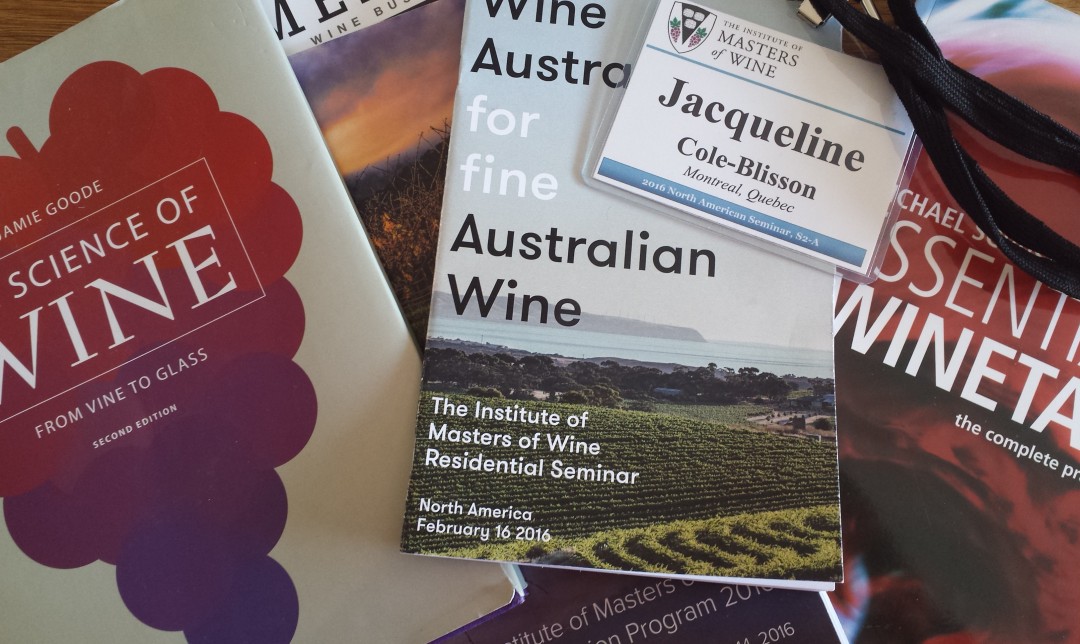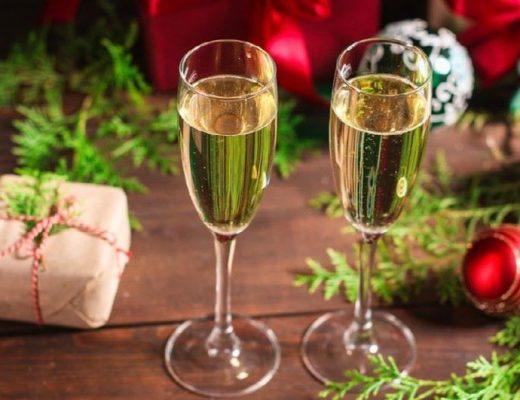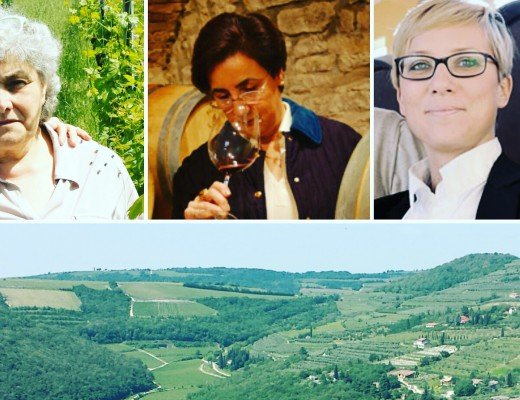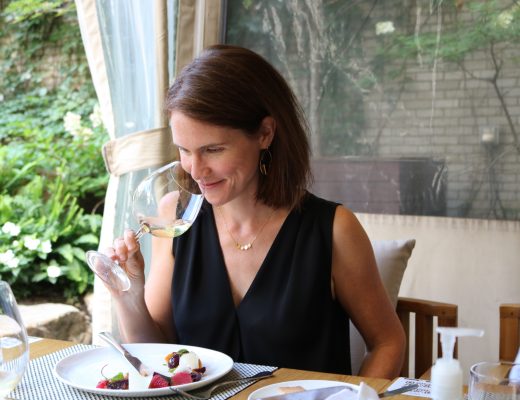When I graduated from university, I remember thinking to myself thank god…I’m out! I am NEVER going to school again. No more last minute, desperate attempts to finish essays or cram a ton of facts into my wee brain before a big exam. No more week-ends feeling guilty about all the study I wasn’t doing. And then, after a mere year out in the “real world” I realized that I had absolutely no interest in my field and found my job utterly tedious. Doh! So…back to the classroom. This time in Burgundy, with far more scientific content than I bargained for, in a language I spoke very poorly. When I finished that incredible, exhausing experience, my first thought was, now I REALLY am done.
Fast forward 10 years, to the seminar I attended in Napa & San Francisco this past week. An intense flurry of blind tasting sessions and theory preparation for the notoriously hard Masters of Wine exams. In less than 6 months’s time, I will put myself through this 5-day feat of endurance with a pass rate of less than 10%! So, of course, the obvious question keeps running through my mind. Why on EARTH am I putting myself through this again? And, more importantly, why am I TELLING everyone about it, considering the spectacularly unfavourable odds of passing? I try to reassure myself by saying that it is the journey, the knowledge that I am obtaining, that is important; the simple fact of pushing myself to excel at something. Then again, maybe this is all some elaborate scheme to make my wine drinking habit seem classy and professional. Yeah, probably a little more the latter…
So what does a Masters of Wine student do at a seminar? Well, while it is far from the challenges faced by a rocket scientist, it is nonetheless intense. Imagine yourself, bleary eyed, staring into your coffee cup at 7:30am. While you were doing that, I was pouring 12 mystery wines into 12 glasses. At 7:45am each day, a deathly silence would fall, broken only by sounds of sipping, slurping, spitting and furious pen scratchings. I had 10 minutes per wine to write detailed arguments, using “evidence from my glass”, identifying the grape(s), origin, quality level, style, winemaking techniques, vintage, residual sugar level, commercial appeal and so on. My “move” was to start each tasting by wasting a couple of those precious minute looking around the room in a blind panic watching everyone tasting and nodding their heads smugly, while my mind emptied of all useful information. Then I proceeded to calm down, taste, make notes and then take more-or-less wild stabs at determining the wines and writing logical, vaguely intelligent sentences. Once the buzzer sounded the end of these daily torture tasting session, the feedback began. Here is why you are absolutely and totally wrong…and so on. Some days, I did fairly well and started feeling a little cocky. Other days I wanted to borrow Harry Potter’s invisibility cloak.
The afternoon sessions were a mix between lectures and field trips. The Masters of Wine program is as much, if not more, a theoretical degree. Tasting well is just the tip of the iceberg. You also need to acquire in-depth knowledge of all major aspects of viticulture, winemaking, quality control, business, marketing and latest industry issues and trends. It is this holistic approach that drew me to the MW, over a sommelier program. That, and the fact that I am far too clumsy for fine wine service in a posh restaurant. The idea behind the theory session is to prepare us for the dreaded exams, where we will be expected to write 3 ~1000 word essays in 3 hours on highly technical subjects, with a wealth of real world examples, in a confident, authoritative manner. Again, my attempts at these time essays generally began with a couple minutes trying to tap into the old memory bank while only useless bits of fluff trivia or lame song lyrics floated to the surface.
The idea is that, come June, the hours of dilligent studying will pay off, I will discover a newfound serenity, and pass on the first try! Cheers to that…





No Comments